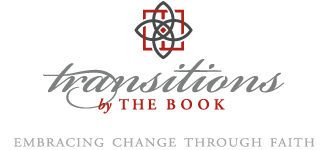Pretend you’re playing Jeopardy… the answers are listed above. But what’s the question? Well, you may be surprised to learn that all of the above are answers for the question: What are the names for the May full moon that graced the skies last night? That’s right. Who would have thought that there could be so many names for the same thing?
Well, it all depends on where you are in the world, your perspective and what’s important to you… Some people refer to the May full moon as a Full Flower moon, because the moon seems so large that it is “blooming” – hence the name “full flower”. Several of the Indian tribes referred to the full moon as the Corn moon, as in when the time is right for the corn to be planted, or even the Milk moon – meaning the time that milkweed starts to grow. Unfortunately, it has nothing to do with cows, as they aren’t native to this country…
The Cree nation in northern Montana and Canada referred to May’s moon as the Frog moon – that’s because it is the time of year that the frogs become active and start to raise their voices across the land. And the Chinese like to refer to the moon as the Locust Tree, based on the lunar calendar that is also used across Asia and several others countries and faiths.
In colonial times, the May moon was sometime even referred to as the Mother’s moon – meaning that the weather was sufficiently warm that it was safe for the newborns to survive without threat of exposure to extreme cold. All in all, many of the months have multiple names for the various moons of the year, but May is certainly among the most interesting.
Which brings us to the theological part of tonight’s post. Notice that the names of the moon don’t alter the fact that the moon is, in fact, the moon. It is consistent, travels around the sky in a predictable pattern and just because we call it something different doesn’t mean the moon ceases to be the moon.
Such is the case with God. It doesn’t matter whether you are American or French or any other nationality with a different vocabulary. The truth is that God is constant, predictable, steadfast, loving, dependable and has so many other fine attributes that don’t change just because we call Him by a different name. As long as we are talking about God (notice the big “G”), it doesn’t make much difference what we call him. His names are numerous throughout the Scripture and His attributes would take volumes to discuss in detail.
The fact is, different attributes of God are important to different people groups. Whether you think of God as El Shaddai (Lord God Almighty), Adonai (Lord or Master), Jehovah Jireh (the Lord will provide), or any of the other many names that God is known by, the important thing to remember is that God is God.
The verse for this evening gives us assurance that no matter what we call Him, we are His people and He is our God. We are told, in Rev. 21:3, “And I heard a loud voice from the throne saying, “Now the dwelling of God is with men, and he will live with them. They will be his people, and God himself will be with them and be their God.” What words of assurance! My encouragement this evening is that God wants to be with us and love us and spend eternity with us. My prayer is that you will think of God’s attributes and all that He stands for – because we are created in the image of God – and that’s something that no other creatures on the face of the earth can claim. Have a great day in the Lord, grace and peace…

Scott
What a reassuring concept. GOD is the same yesterday, today and forever, and the best news is, HE loves US. I am so thankful.
thanks for the blog.
Dave